Business Studies School Trip To Prague
See how Prague’s companies have successfully managed the transition from communist control to the free market. Business Studies students will gain a lot of understanding by exploring how the city works.
Highlights
Tour of the Škoda car factory
The business of brewing at the Staropramen plant
Learn about life under the former Communist regime
Tour of the Rückl Crystal Factory in Nizbor
St Ivo SchoolThe trip was incredibly well planned, and easy to lead. The staff are really helpful and kind and are quick to act on any queries or problems that arise.
Suggested itinerary
What's included*
*Please note, entrance fees where applicable are not included in typical price – contact us for more details
Recommended excursions
This factory tour shows how the Škoda brand has survived upheavals to modernise, collaborate and retain a competitive edge. Visits to the production facilities 55km from Prague allow students to study the role of theoretical organisational processes in real-life business. They can also explore the role of manufacturing in a modern economy.
See how this Czech favourite beer is produced, how it uses modern technological processes to adapt to its target market and how the business has grown internationally. The tour is automated, so there’s no guide, but it uses monitors, holograms and sound to tell the story of the brewery.
Founded in 1846, Rückl Crystal makes cut leaded crystal items including glasses, perfume bottles, trophies and lamps. Students can tour the glassworks in Nižbor, and learn about the individual stages of producing glass crystal by hand, including the furnaces, processing, designing and polishing.
Understand more about life in Czechoslovakia and the city of Prague under the Communist regime. This centrally located museum covers topics of daily life, politics, history, economics, education, sport, and the arts. The museum also examines the institutions required to uphold the regime such as media propaganda, People’s Militias, the Secret Police, censorship, show trials and political labour camps.
Located in the town of Plzen, the Pilsner Urquell Brewery was the world’s first producer of Pilsner beer. A guided visit explores the technological process of beer production at the plant where this world famous beer has been brewed since 1842. Learn about the ingredients used and view a film explaining the secrets of brewing Pilsner. No tasting for students under 18.
This producer of sparkling wines is located in the small Czech Town of Stary Plzenec. Enjoy a tour of the production process and learn about wine making in the area, which can be traced back to the Middle Ages. The 1940’s saw a local winery start to produce sparkling wines using the French Champagne Method. No tasting for students under 18 years.
This bus tour allows a behind the scenes view of the airport’s operation in the South and North Cargo Zone. See freight aircraft before take-off and landing. The tour looks at the technical side of the operation and goes inside the Fire and Rescue station. (Maximum group size of 45)
The Defenestration of Prague took place at this huge and ancient castle, an event that sparked the Thirty Years’ War, drawing many of the states of Europe into conflict and playing an important role in modern understandings of statehood. After touring the castle, students can reflect on the roots and possible causes of the conflict.
Take to the River Vltava for a most relaxing way to take in the sights of Prague. Choose from a traditional steamer or cruise boat for a view of the city from the water. The English translation brings the sights to life such as National Theatre, Prague Castle and Charles Bridge.
This magnificent 14th century stone bridge is the main pedestrian route connecting the Old Town with the Lesser Town and Prague Castle. During the day you can join the crowds watching the street performers and enjoy fairy-tale views of the city skyline. Early morning and evening are good times to come for a relaxing stroll and admire the bridge’s 75 statues.
Through the streets, cemetery and synagogues of the Jewish quarter, students find a diverse world of beauty and tragic history. Nothing highlights this more than the ornate Spanish synagogue, which was used in World War II as a repository for property taken from the Jews. It now forms part of the Jewish Museum and is a wonderful setting for classical concerts.
Take a private guided tour of the most interesting sights your destination has to offer. View and discuss significant buildings and trace the city’s development through its architecture. Explore unmissable attractions as your guide entertains and informs with colourful details that bring them to life. It’s a great way to gain a deeper understanding of the city.
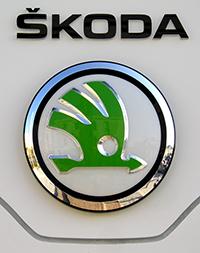
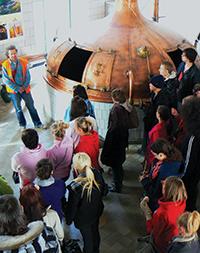

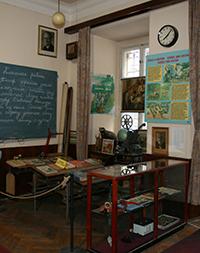

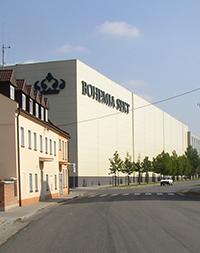

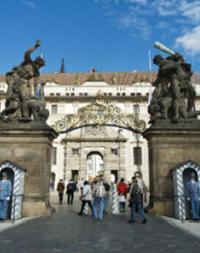
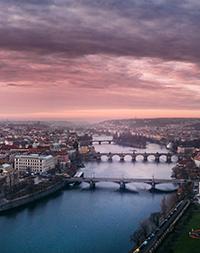
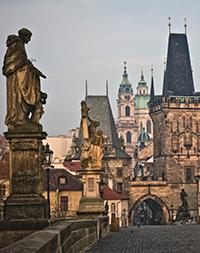
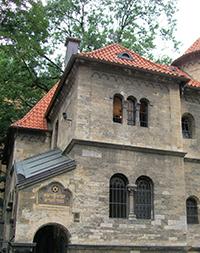
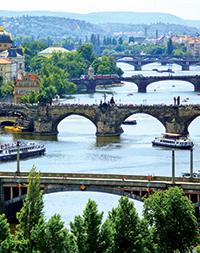
Typical accommodation
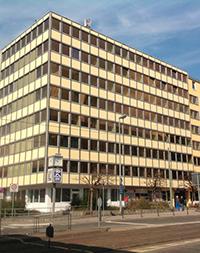
Why groups like it:
Facilities:
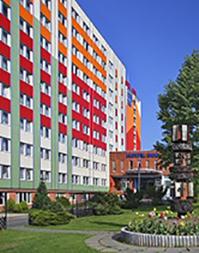
Why groups like it:
Facilities
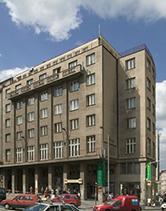
Why groups like it:
Facilities
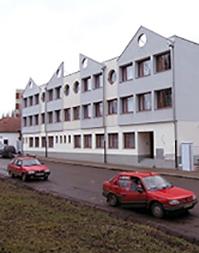
Why groups like it:
Facilities
Learning outcomes
Subject focus
Students can:
- Understand the transition from a Communist to a free market economy
- Experience traditional and modern methods of production
- Consider the implications of the global market for businesses in the local economy
- Evaluate the factors influencing the location of production
- Consider the social and environmental considerations in production and location
- Build confidence and learn to value the skills and techniques needed for personal and team success
- Discover, explore and have fun with fellow students and teachers
Student outcomes
Students will have had an opportunity to:
- Understand the features of different types of markets
- Gain an understanding of the concepts of demand and supply
- See how businesses operate in an international context
- Explored the idea of internal and external economies and diseconomies of scale
- Gain independence and self-confidence
- Strengthen existing friendships and make new friends



